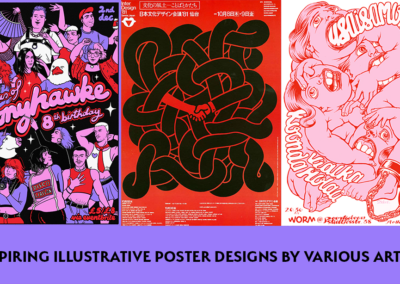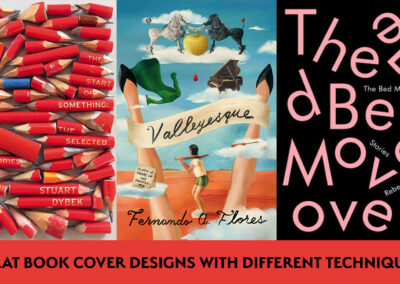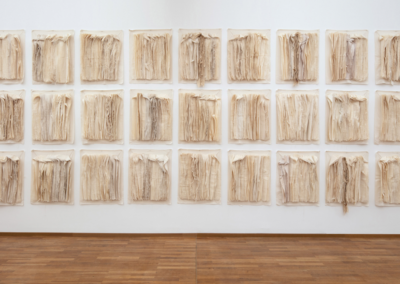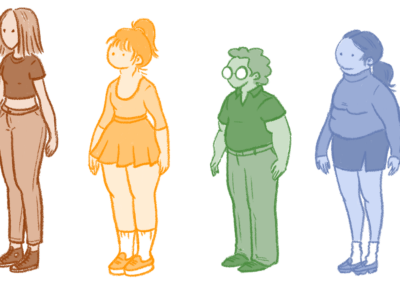Wacom was at the unique nocturnal experience that is Us By Night 2018 in Antwerp, Belgium. This festival is a combination of an inspiring lineup and an endless night-market which made this the perfect opportunity to meet with many creative talents.
We had inspiring talks with many artists and learned a lot from their experience. One of the artists we had the chance to interview is an illustrator and game developer Antony Ward, aka antCGI. In the video below, he talks about his work, trajectory as well as advice for those who want to do CGI and character design.
If you would like to learn more, read on below to find out what Antony´s top experiences are, setbacks he had to deal with and workaround solutions he has learned.
What are the top positive and/or negative experiences you´ve learned from?
I once had a client who had me working on a short contract, two months at a time but kept extending it as the project grew. The problem was the client was a little too relaxed with deciding whether they still needed me or not and only let me know a few days before the contract ended. When the contract did finally end and they didn’t want to extend it further I wasn’t properly informed so this left me with nothing to move onto, which is bad when your freelance.
Now, I make sure I contact the client and give them enough notice, letting them know I am starting to line up my next contract. This way we all know where we are, and they have a short period of time to let me know if they want me to continue. If they don’t get back to me then I can make sure I have a new contract ready and waiting.
As for the positive sides to being freelance, the main one is I’ve had the chance to watch my kids grow up. Being at home means I see much more of my family and am able to attend school plays etc, something I would have missed being back in a studio and not getting home until late each evening. I’ve also been able to meet a wealth of new people and expand the scope of my work much more than would have thought possible, meaning I work on some fun projects.

One of antCGI´s artworks
Are there any setbacks you had to deal with?
Main hurdles you have to overcome when your freelance is making sure you can bring in enough work to pay the bills while also ensuring your skills are kept current. I have quite a wide skill set, so I can offer clients a variety of services be that building 3D models, creating effects, rigging characters or even animating them, it means I have more options to consider when looking for work. It also means I can take on projects for game studios as well as visual effects companies because I can scale the work I’m doing.
The problem is you have to stay on top of new technology so I find I’m always trying to learn the latest application or technique. I can’t use the same approaches I used ten years ago, things have moved on so much and you are constantly running to keep up.
My advice to anyone thinking of going freelance would be to diversify. If your an animator, learn to also build rigs. Maybe even attempt to model or sculpt in your spare time so you have more to offer. People are often surprised when they approach me with a concept and I tell them that I can take it from the initial model right through to being ready for animation. To them, it means they are employing one person so it streamlines the process and no one is ever left waiting for an asset, for me its a long period of work.
What are some major workarounds to solve issues or to improve your workflow that you´ve learned?
When you work from home the temptation is to work all the time. Evenings, weekends, it is too easy to just nip into the office for an hour to finish something or reply to emails.
When I started out I didn’t have an office so I had to work from our bedroom which started to affect my sleep, because I was essentially in that room all day and all night. Having a dedicated office space made it easier for me to manage my work-life balance because once I left it, I could switch off. Also making sure I work set hours and rarely do anything on the weekend, which isn’t difficult if you take the time to quote properly. If a client does need me to work on a public holiday or anti-social hours, I charge them more for it, which means they usually don’t push for it.
I think that your health is also a crucial aspect to be aware of when freelance. It seems obvious but when your working from home you don’t move much or even get out. I found that I put on a lot of weight during the early years plus I suffered from sleep issues and chest pains at one point which was a wake-up call. I now make sure I go to the gym three times a week when I can, and on the days I don’t make it I spend some time out of the house. Even if it’s for a half an hour walk it’s better than nothing. If nothing else exercise is a great way to deal with stress plus I find if I’m stuck on a particular problem, a trip to the gym will help me to focus.
At the end of the day your health is important and if your unwell and can’t work, you’re not earning any money. Unfortunately, freelance artists don’t get sick pay.

Antony working on his Wacom MobileStudio Pro
How do you decide when you can trust a client and continue working with him and when not?
With any client, you have to build a relationship of mutual trust. They need to know that you will do the work to a high enough standard, especially if you are working remotely, and you need to know they will support you and also pay. I’m lucky that I now have regular clients and a list of trusted contacts throughout the industry, but when approached by someone new I do take precautions.
I check the company and see if they are stable and where possible I go to them for an initial meeting before work begins. A face to face meeting works wonders and if a visit isn’t an option, a Skype call will do. I think over time you get a gut feeling for these things so you can sniff out the serious clients versus the ones you should be wary of, and if you’re not sure, ask them for a deposit. As a rule, don’t do “work for free” or the old, “work for royalties”, they almost never pay off so it’s a big gamble to take.
About Antony
Antony Ward, Creative Director at antCGi Limited Since the early 1990’s, Antony Ward has continued to work for many of today’s top game development and visual effects studios.
Companies like Electronic Arts, Infogrames, Sumo Digital, Ragdoll Productions, and Jellyfish Productions are just a few among his client list, who utilize his skills in 3D modeling, texturing, rigging, animation and tool creation on a regular basis.
In addition to this, he has also found time to share his knowledge through three successful technical manuals and continues to do so with regular tutorials.
Even though his primary tool of choice is Autodesk Maya, the past few years have seen him dedicate more time to working in Photoshop, to further develop his illustration skills and the unique style in which he paints today. What started as a pastime has fast become an additional part of his already wide skillset as he juggles both 3D and 2D illustration work to please his many clients.
Website – Instagram – Twitter – Facebook







